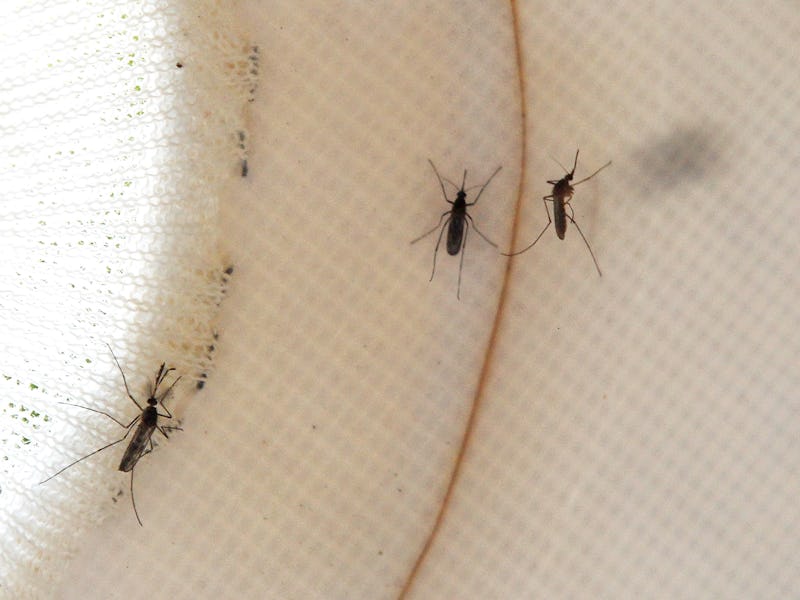Zika Virus Pregnancy Restrictions Will Curb Population Growth
Colombia, Ecuador, El Salvador, and Jamaica are pulling out all the stops.

In an attempt to avoid birth defects potentially caused by the rapidly spreading Zika virus, government leaders in four countries have issued a warning to their female populations: Don’t get pregnant.
The leaders of Colombia, Ecuador, El Salvador, and Jamaica issued the urgent recommendation today following an outbreak of the mosquito-borne virus in Brazil, which has been linked to nearly 4,000 babies with abnormally small heads, a medical condition known as microcephaly. The unprecedented action warns women to avoid pregnancy for up to two years, which could have significant effects on population growth in these countries.
If compliance is high — say, 90 percent — countries would be expected to grow at 10 percent of their current growth rates for the next two years, then continue at 100 percent after that.
Colombia: 600,000 Less People
So, Colombia, which the World Bank reports had a population of 47.79 million at the end of 2014, would grow at a rate of 0.009 percent over 2016 and 2017 then continue at 0.9 percent (its current growth rate) to reach 65,394,392 by 2050. Without the pregnancy restriction, its 2050 population would be closer to 65,982,941. That’s a difference of almost 600,000 people.
Ecuador, El Salvador, and Jamaica
Similarly, by 2050, Ecuador would have a population of 26.4 million people with the ban, and 27.1 million without. In El Salvador, the restrictions would result in a 2050 population of 16.3 million, while it’d be 17.4 otherwise. In Jamaica, the numbers would be 2.91 million with the restrictions and 2.92 million without.
In reality, compliance is very unlikely to be as high as 90 percent. Critics have pointed out that countries such as Colombia have such high rates of sexual violence that it’s unrealistic to ask women to put off pregnancy.
Still, the fact that these countries are willing to put off growth by any margin goes to show how serious they are about curbing the effects of the Zika virus. While the Pan-American Health Organization reports that mother-to-child transmission of the virus isn’t confirmed, it warns that the correlation between diseased pregnant women and microcephaly in their newborns is not one to be taken lightly, even if it hasn’t been confirmed.
The condition, which involves incomplete brain development, has resulted in death in a small number of infants.
While the four countries mentioned are the only nations calling for pregnancy restrictions, the WHO warned today that Zika is likely to spread throughout the Americas, with the exception of Chile and Canada.